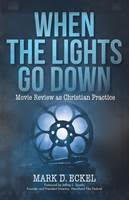Why do I watch the same movies over and over again?

We look for characters with this character trait . . .
I remember having to take myself out of a trance-like state during The Blair Witch Project to look around the theatre. Everyone was so deeply engaged. Up in the Air made me bawl like a baby because what George Clooney’s character did on screen was done to me. I finished watching Black Snake Moan and spent the next half hour pacing back and forth over my back deck. Then I wrote my review (here). My final line summarizes, “Until we can see people as Jesus saw us, we will never see people; we may never see Jesus.”
How we choose the movies we watch could be summarized by fill-in-the-blank:
- “I am in the mood for _____”
- When we’re sad, mad, or glad we choose ______.
- When we want to relax, escape, or just be entertained we go with ______.
- If we want to imagine, be inspired, or follow a character we pull _____ off the shelf.
- If we are committed to a certain point of view we may watch _____ to reignite our passions.
 Why do we like some movies better than others, watching them over and over? The best explanation I have run across is the book Flourish by Martin E. P. Seligman. A psychologist, Seligman identifies the five essential elements of well-being: positive emotions, engagement, relationships, meaning, and accomplishment. [He refers to these elements in an acronym: perma.] The movie producer Lindsay Doran references the idea of “perma” when she talks about movies we love.
Why do we like some movies better than others, watching them over and over? The best explanation I have run across is the book Flourish by Martin E. P. Seligman. A psychologist, Seligman identifies the five essential elements of well-being: positive emotions, engagement, relationships, meaning, and accomplishment. [He refers to these elements in an acronym: perma.] The movie producer Lindsay Doran references the idea of “perma” when she talks about movies we love.
“The accomplishment the audience values most is not when the heroine saves the day, or the hero defeats his opponent.” Instead, she said, “The accomplishment the audience values most is resilience.”
 If you’re like me “resilience” means Rocky, Shawshank Redemption, Godfather. And if you’re like me, you have watched these titles multiple times because you want “resilience.” But Doran goes further.
If you’re like me “resilience” means Rocky, Shawshank Redemption, Godfather. And if you’re like me, you have watched these titles multiple times because you want “resilience.” But Doran goes further.
“Audiences don’t care about an accomplishment unless it’s shared with someone else. What makes an audience happy is not the moment of victory but the moment afterwards when the winner shares that victory with someone he loves.”
 Victory shared with another sounds to me like The Natural, The Thin Man, Rear Window, or 12 Angry Men. Over and over, again and again we choose to watch the same movies because we identify with shared experience. However, Doran is not finished.
Victory shared with another sounds to me like The Natural, The Thin Man, Rear Window, or 12 Angry Men. Over and over, again and again we choose to watch the same movies because we identify with shared experience. However, Doran is not finished.
“I think the thing that they’re getting out of it is that the ‘happy ending,’ the one that is most memorable and might make people go back to see the film a second time, might not be about winning, it might be about not winning, about finding something deeper that means more than victory.”
 “Something deeper than victory” points me to Bogart films. The Maltese Falcon, Casablanca, and The Big Sleep are movies where the hero fights for another, for another’s cause, and is not guaranteed a “win.”
“Something deeper than victory” points me to Bogart films. The Maltese Falcon, Casablanca, and The Big Sleep are movies where the hero fights for another, for another’s cause, and is not guaranteed a “win.”
 Gladiator and Braveheart display the incomplete accomplishments of men. Each death at movies’ ending displays something other than winning the pennant or the Super Bowl.
Gladiator and Braveheart display the incomplete accomplishments of men. Each death at movies’ ending displays something other than winning the pennant or the Super Bowl.
When I read that statement again “it might not be about winning, it might be about not winning, about finding something deeper that means more than victory” I think of Genesis 38.
God’s story for the human race, Genesis 38 is my favorite First Testament story that exactly sets the standard for why we watch movies again and again.
 Read Genesis 38; come back to this essay when you are finished. It will take five minutes.
Read Genesis 38; come back to this essay when you are finished. It will take five minutes.
If you’re like me, you feel for Judah. Patriarch of a family, one of Judah’s constant thoughts is “Who will carry on my name when I’m gone?” In a patriarchal society, sons’ matter. Judah had at least three sons.
The first son marries a woman named Tamar. The son sins and is killed. We are not given details. This is called “the set up” in a movie. There is something more important than this guy’s death. Sadness for Judah to be sure. However, Judah still has two sons left. The second son now marries Tamar. [That was the rule in Judah’s ancient culture. If a brother died, the brother next-in-line would impregnate the dead brother’s widow. Why? So that the widow would have children to take care of her.]
Back to the story. Son number two sins and dies. He sins because he refused to carry out the impregnation. [Sidebar: This is the reason I wanted you to read Genesis 38 because verse 9 explains what I did not want to put in print.] Here comes the point of the story: Tamar is required to be given Judah’s third son to keep the ancient family rule.
Now what would you do? You have just lost two sons. You personally do not know why they died. The only common denominator is Tamar. You look at Tamar, then to son number three, then back to Tamar.
And you renege. You back out. You do not want your third son to marry that woman. For all you know, Tamar is the reason why your other two sons are in the family burial plot. Son number three does not marry Tamar.
So, if you were Tamar, what would you do? You are a woman living in a man’s world. You need future sustenance and protection. You need children to care for you in old age.
Now if I were writing a soap opera, I would write Genesis 38. What Tamar does next is better than any movie or television drama, ever.
Tamar dresses up like a prostitute and seduces Judah to have unprotected sex.
Can’t you hear Tamar saying to herself, “You won’t give me your son’s seed? Then I’ll take yours!” Now in those days, payment for services rendered was not the swipe of a credit card. People paid with property like goats or goods like grain. But Judah seemed to be lacking both. So he gives up his staff and signet ring, both identifying who he is, what family he is from.
Everyone goes about their business as usual until Tamar begins to “show.” Being pregnant is hard to hide. Since Tamar had lost her first two husbands the only explanation for her “being with child” was extra-marital sex; a strict no-no in Judah’s ancient culture.
Judah sees Tamar’s condition and orders her death.
If ever there was a “trump card” in all of biblical history, this was it. “So,” Tamar begins, “Judah,  would you like to know who did this to me?”
would you like to know who did this to me?”
Out come the staff and signet ring.
Out goes the death sentence.
Out goes Judah’s arrogance.
In comes twins into Judah’s family; ironically, they are both boys.
But this is the reason why I so resonate with Doran’s statement
“It might not be about winning, it might be about not winning, about finding something deeper that means more than victory.”
Genesis 38 provides the perfect example of the kinds of movies (stories) we watch again and again.
Judah does not “win” but he does. His big concern for who would carry on his name could not have been better answered. One of the twin boys, Perez, becomes the progenitor of Jesus. We find his name mentioned in genealogies like Ruth 4 and Matthew 1.
The whole story of Judah and Tamar, from a purely human perspective, is wrong.
But God consistently uses wrong to bring about right.
Did the gladiator (Russell Crowe) die? Yes. But he ‘saved’ Rome.
Did “Braveheart” William Wallace (Mel Gibson) die? Yes. But his final shout of “freedom” provided the will for his countrymen to create a free country.
God is always “finding something deeper that means more than victory” in our fallen humanness. But what we long for on screen, what we see throughout Scripture, is that one person will rise up to reclaim what is right.
The reason we watch those movies again and again is because we await the Risen One who displays the RESILIENCE of God’s Plan, reclaiming what is right.
This essay is taken from Mark’s book When the Lights Go Down: Movie Review as Christian Practice  (here). Subscribe to “Truth in Two” videos from Comenius (here). Mark is President of The Comenius
(here). Subscribe to “Truth in Two” videos from Comenius (here). Mark is President of The Comenius Institute (website). Dr. Eckel spends time with Christian young people in public university (1 minute video), hosts a weekly radio program with diverse groups of guests (1 minute video), and interprets culture from a Christian vantage point (1 minute video). Consider becoming a Comenius patron (here).
Institute (website). Dr. Eckel spends time with Christian young people in public university (1 minute video), hosts a weekly radio program with diverse groups of guests (1 minute video), and interprets culture from a Christian vantage point (1 minute video). Consider becoming a Comenius patron (here).
Picture Credit: Luke Renoe, Snappy Goat


Great post Professor.
Some wonderful thoughts for the Easter message.
Not sure if you’ve watched this TEDx talk on Why Stories Captivate (https://www.ted.com/talks/tomas_pueyo_why_stories_captivate). Pueyo mentions that from a neuroscience perspective, a story is “a device that enables you to get into somebody else’s brain to experience their experiences, think their thoughts, and feel their feelings.”
In Judah and Tamar’s story, (and in every Bible incident) our Almighty God (the Master story-teller) uses life experiences to teach us what He thinks and feels, so that we can ultimately learn from Him and be like Him as His children.
Judah’s response to Tamar (after realizing the common denominator factor), and how we would probably do the same if we were in his shoes, reminded me of another TEDx talk – The danger of a single story (https://www.ted.com/talks/chimamanda_ngozi_adichie_the_danger_of_a_single_story). God wants us to learn to trust Him, because He is able and willing to turn our failures into triumphs and our “dying” into a resurrection for His glory.